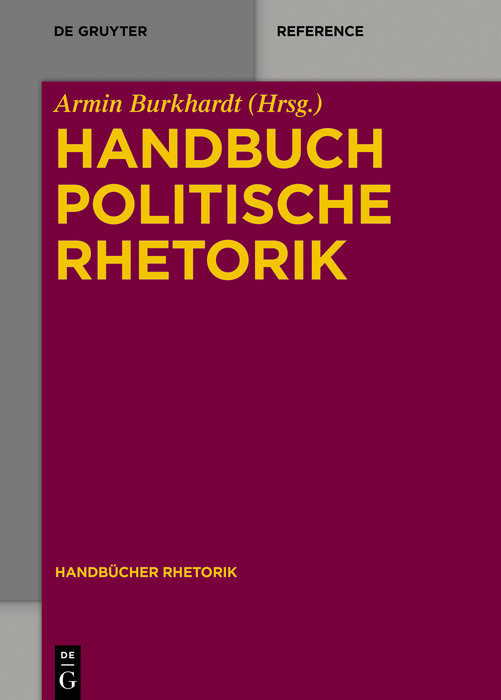Seit Menschen in größeren Gruppen zusammenleben, werden sie in ihrem Verhalten von denen beeinflusst, die besonders wirkungsvoll zu ihnen sprechen können. Die politische Rhetorik ist daher so alt wie die Politik und steht in enger Korrelation zu den epochalen Denkweisen, Sozialformationen sowie den Medien, die jeweils für die Verbreitung des Gesprochenen zur Verfügung stehen. Da die Reden der großen politischen Rhetoren der griechischen und römischen Antike - wie Demosthenes und Cicero -überliefert und wie die Werke der großen Rhetoriker - von Aristoteles über Quintilian, Vossius und Hallbauer bis Walter Jens - für die jeweils späteren Redner und Theoretiker der Beredsamkeit Vorbild, Voraussetzung und Maßstab geworden sind, beginnt das Handbuch mit 13 Überblicksartikeln zur Geschichte. Eine zweite Gruppe von insgesamt 23 Artikeln widmet sich unterschiedlichen politiktypischen Redegattungen/Textsorten und Sprachphänomenen (Figuren, Tropen, Schlagwörter, Sprechakttypen und dialogische Formen). Exemplarische Analysen zur Rolle der Rhetorik und zum Gebrauch rhetorischer Mittel in Texten wichtiger Autoren der Weltliteratur sowie internationale/interkulturelle Vergleiche bilden die weiteren Themenbereiche der insgesamt 50 enthaltenen Artikel.


